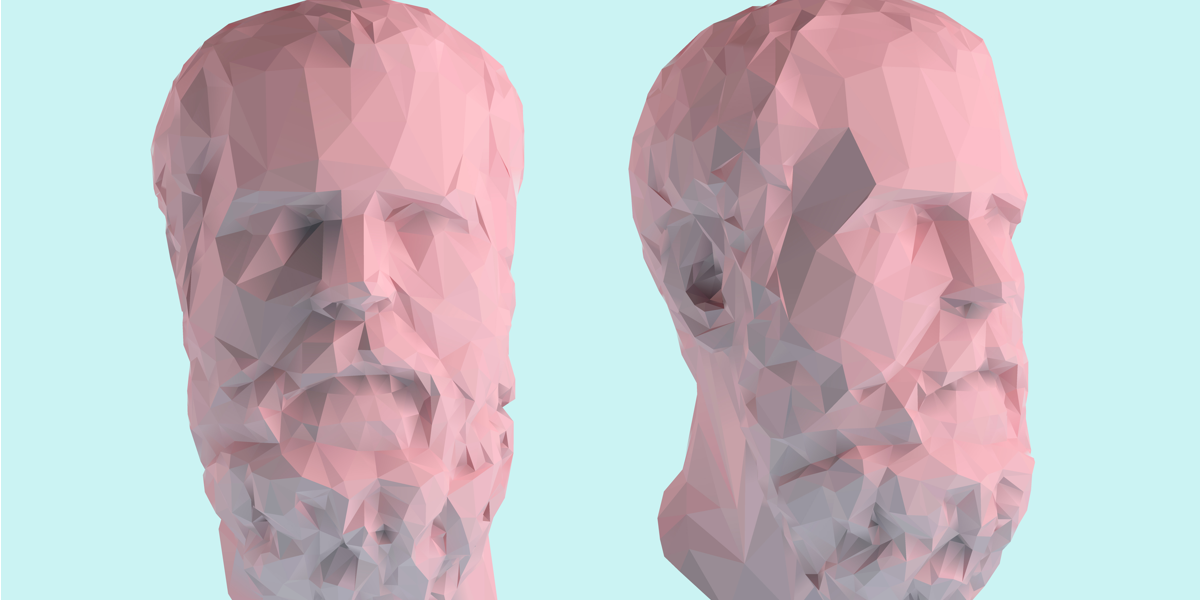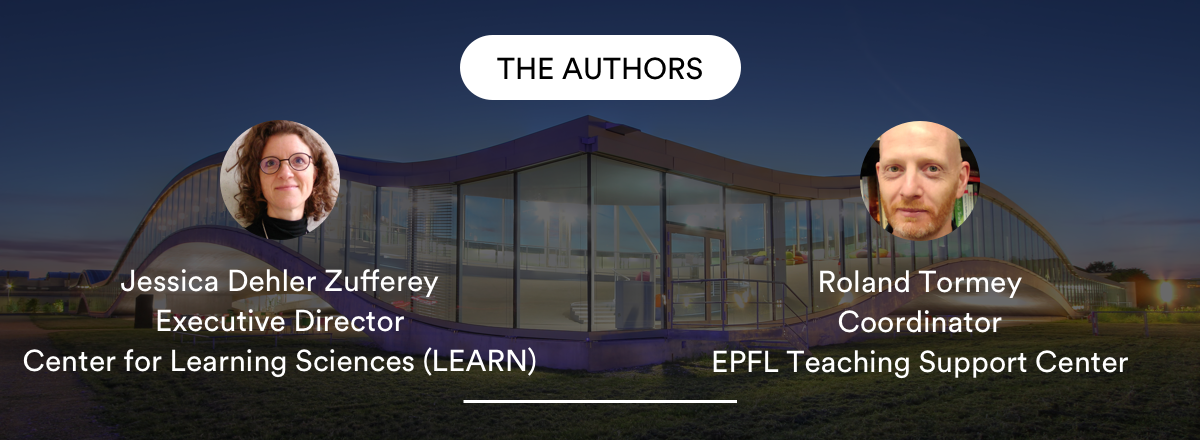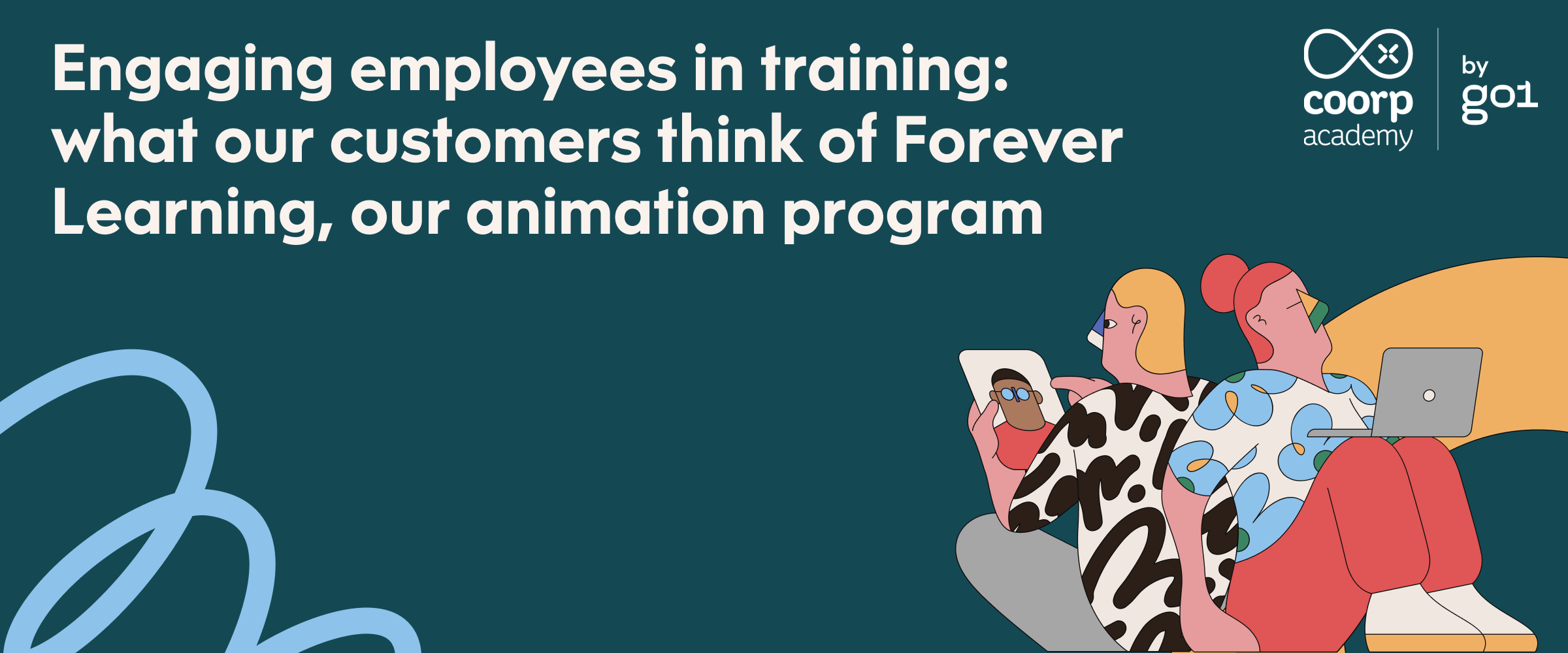Aristotle said it and it is still true: there’s no real knowledge without ethics
Learning Innovation

This article is part of our Learning research and innovation series, offered by Coorpacademy in association with the EPFL’s (Federal Institute of Technology of Lausanne, Switzerland) LEARN Center. The authors are Jessica Dehler Zufferey, Executive Director of LEARN and Roland Tormey, Coordinator of EPFL Teaching Support Center.
When reflecting on your lifelong learning journey, you probably contemplate on which training you would like to take, what knowledge you might lack, and which of your learning habits are sub-optimal. In some moments, you might even find yourself thinking about what “knowledge” really is; is it being up-to-date with the latest flow of information? Is it having accumulated expertise in a specific domain through experiences? Is it our general level of education? Or could it be something else?
Three types of knowledge
In Ancient Greece at the dawn of scientific knowledge, Aristotle distinguished three types of knowledge. (1)
- Epistème refers to the understanding of the world and the universally true reason of why something is. Today, we would talk about this as scientific and theoretical knowledge.
- Technè applies and uses this scientific knowledge, most of the times in order to achieve something. While epistème allows to understand the world, technè is about acting on the world. (2)
- Phronêsis, the third type, takes the reflection one step further. Not only is theory applied in action, but phronêsis adds the consideration of the ethical implications of the proposed action. Some have translated it as prudence, but not in the sense of hesitant application, but rather practical wisdom or sagacity and the capacity to distinguish good from bad action in day to day life. It seems easy to consider phronêsis as a necessary ingredient of knowledge, when we remind ourselves that not all application of scientific knowledge was and is ethically optimal.
These ancient concepts continue to bubble through in contemporary social and human sciences research too. Jonathan Haidt (3), a social psychologist at the University of Virginia, has explored the way in which our actions are often driven by emotions and instincts rather than by rationality. Much of our ethical behaviour is, he argues, driven by ‘moral emotions’ like compassion, gratitude, contempt and anger, rather than by ‘moral reasoning’ as it is traditionally conceptualized. For those who think of themselves as rational people, his research is eye-opening in the way it demonstrates the typical cognitive bias in ethical decisions: they are taken very quickly and driven by emotion, with our rational mind being used to justify the decision after the fact. Cultivating the aptitude to live ethically then requires more than developing our rational selves. Developing phronêsis – practical wisdom – will require emotional as well as intellectual work, it seems.
Are we there yet in our current education models?
Of the three types of knowledge identified by Aristotle, epistème, related to science & theoretical knowledge, is the most teachable. Universal laws can be explained and demonstrated to learners. In turn, technè builds on epistème. The identification of possibilities to apply that theoretical knowledge can be trained for example by experiential learning. Most of our learning, at school, at university, in apprenticeship and in corporate workplace learning is of the first or second type. Instructional designers often try to optimize the learning experience in order to facilitate the transfer from epistème to technè, i.e. the application of theoretical and conceptual knowledge.
However, phronêsis cannot be taught independently of the other two. It is considered to grow naturally with experience. However, the opposite might be happening. François Taddei reports in his recent book Apprendre au XXIe siècle (4) how the consideration of ethical implications can drop with growing levels of expertise and education. He refers to a 2011 study showing that the number of years of medical studies was negatively correlated with empathy (the dimension of ethical considerations addressed in this study). Similar results are reported for management students who seem to lose their collaborative attitude over the course of their studies. Our own studies with engineering students have found that their levels of moral reasoning may decline as they study. (5)
Many call for a more integrated view on education that integrates all three types of knowledge. For example, the French national engineering accreditation body CTI (Commission of Engineers Titles) included the capacity to identify ethical responsibilities as an essential criterion for any training of engineers. (6) (If at this point, you want to analyse the capacity of practical judgement in your organisation, you could apply the inventory on ethical climate for example).
A training program addressing all three types of knowledge
Research suggests that training of phronêsis should not be implemented as pure philosophical courses on ethical reasoning. Criteria for success are for instance cognitive engagement through complex dilemmas with diverse potential decisions, emotional relation with realistic rather than dramatic case studies, and integration in subject-matter courses.
Take computer science education as an example. In this field, there has long been a focus on teaching computer science (the epistème part of it) and/or ICT (Information and Communication Technology) usage (the technè part of it). Only recently, and probably due to the general awareness about the digital transformation of all aspects of life and society, the analysis of the impact of digital technology on the world was included as an essential ingredient. The German Society for computer science, for instance, has declared in 2016 that digital education needs to include three questions:
- How does digital technology work?
- How do I use it?
- How does digital technology impact the world?
In order to educate on the third question in our current projects on, more generally, computational thinking education, we sought for inspiration from the latest thinking in a quite new domain called sociology of digital technology (the most recent and complete view was presented by Dominique Boullier). Different perspectives are used in order to analyse the impact of digital technology on many levels:
Cognitive science and psychology help to analyse the impact on ones behaviour and thinking as a user of digital technology;
Social psychology and sociology support the evaluation of impact on interpersonal relations, social groups and society;
Historical comparison allows us to identify the impact on any aspect of life such as work, mobility, communication, security, or health. It can even shed some light on the question of how digital technology might impact the future.
Why it matters
Today, we see that scientific knowledge and technological evolutions, especially in digital technologies, have an enormous impact on the world. There are few things we now do without digital help, whether it’s explicitly using digital tools, or it’s the algorithms working in the background sometimes without us being aware of them. Our communication patterns have changed dramatically. In parallel, algorithms inside social media platforms recommend us social interactions. Professionals from multiple domains have included digital practices into their working habits. Our consumption is turning more and more towards e-commerce. Our online behaviour is used to advertise products and services more successfully, and the internet of things will expand the data available to improve these recommendation systems further. We should get prepared for more transformations in the future.
At the same time, we are confronted with incredible challenges, ecological (global warming, access to drinking water, renewable energy, …) and societal (just think of public opinion and democracy in this time of ‘fake news’), that we need to tackle if we want our societies and species to survive.
As a result, it is time to learn to learn again – not only theoretical knowledge and how to use it, but how to make use of it for the betterment of ourselves, of our relations with others, of our society, and our world.
Innovation in Learning Science and Educational Technologies are top of our agenda at Coorpacademy, as we see them as critical to our mission to continuously improve the learning experience on our platform, making it even more personalized, flexible and enjoyable for learners.

Sources
(1) Aristotle, Nicomachean Ethics, second edition, translated by Terence Irwin, Indianapolis: Hackett Publishing Co., 1999.
(2) Stanford Encyclopedia of Philosophy. Episteme and Techne. https://plato.stanford.edu/entries/episteme-techne/#3
(3) Haidt, J. (2013) The Righteous Mind: Why Good People are Divided by Politics and Religion. London: Penguin
(4) Taddei, F. (2018). Apprendre au XXIe siècle. Calmann-Lévy
(5) Tormey, R. LeDuc, I., Isaac, S. Hardebolle, C. and Vonechè Cardia, I. (2015) The Formal and Hidden Curricula of Ethics in Engineering Education https://www.sefi.be/wp-content/uploads/2017/09/56039-R.-TORMEY.pdf
(6) CTI https://www.cti-commission.fr/fonds-documentaire/document/25/chapitre/1217
(7) Cullen, J. B., Victor, B., & Bronson, J. W. (1993). The Ethical Climate Questionnaire: An Assessment of its Development and Validity. Psychological Reports, 73(2), 667–674. https://doi.org/10.2466/pr0.1993.73.2.667
(8) German Society for Computer Science, 2016, Dagstuhl-Erklärung.Bildung in der digitalen vernetzten Welt. https://gi.de/fileadmin/GI/Hauptseite/Themen/Dagstuhl-Erkla__rung_2016-03-23.pdf
(9) Dominique Boullier. 2019. Sociologie du numérique. Paris, Armand Colin.


